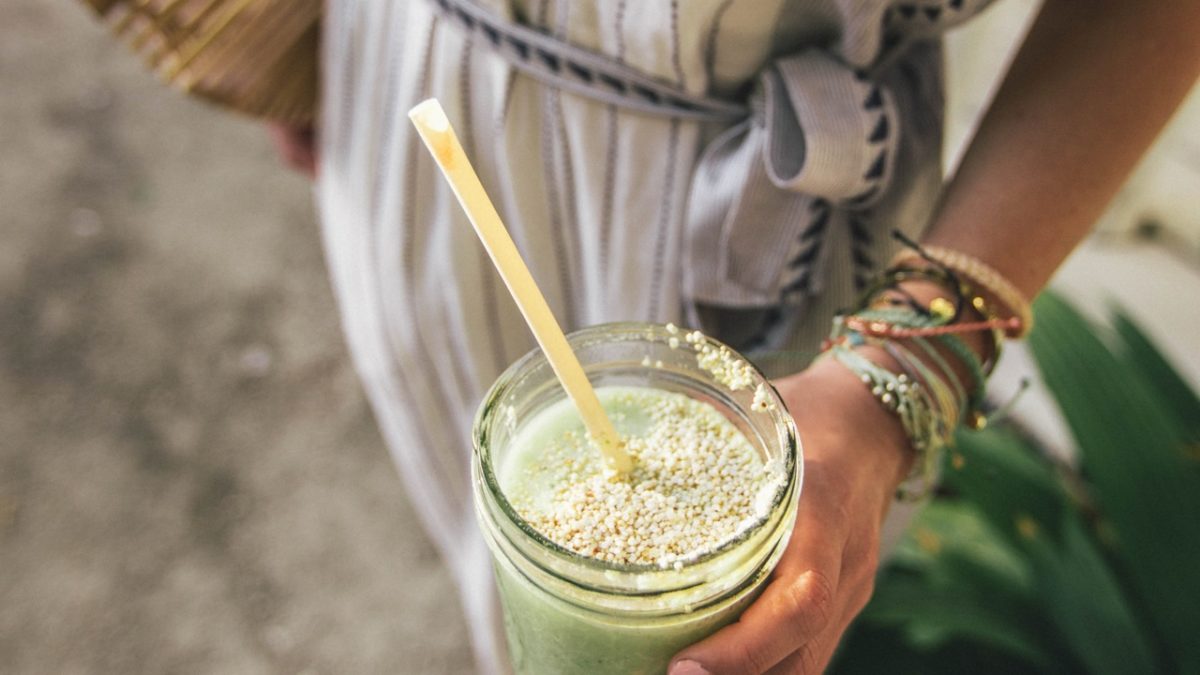Love to read? Enjoy the article below. Don’t have time? Click the player to listen.
Should you detox before getting pregnant? As a midwife and medical doctor specializing in women’s health, I get this question often. And if I had gotten this question ten years ago, I might have said no. But a lot has happened in the evolution of health challenges our kids are facing the last decade or so that has given me pause. Our kids are facing alarming and increasing rates of allergies, eczema, autism, ADHD, learning disabilities, obesity, Type 2 diabetes, autoimmune diseases, and even cancer. The next generation’s life expectancy has also shockingly declined compared to our own.
For at least 3 decades, evidence from environmental health studies has led to growing agreement amongst scientists and many health professionals that environmental toxins are playing a role in the incidence and prevalence of these and other health conditions in the United States. Scientists estimate that at least 30% of childhood asthma and 5% of childhood cancers are a result of chemical exposures.
Read the article below, or listen in to hear me talk about whether it's important to detox before pregnancy, whether it’s important for you, and how to do it safely.
Understanding Body Burden and Our Kids’ Health
It’s now clear that many health problems begin long before birth due to toxic exposures in the womb.
From conception on, our babies get more than just our genes; through maternal-fetal transfer, they receive a constant toxic streaming download of the body burden of chemicals we have accumulated throughout our own lives and which we are exposed to in pregnancy. Pregnancy itself increases the mobilization of a number of stored chemicals and heavy metals, for example, lead, which cross the placenta and get to baby.
It is also documented that a mother’s stores of common fat-soluble environmental chemicals including PCBs, and dioxins released during pregnancy, can expose the fetus to harm. A very recent study found that pregnant women and their fetuses are being exposed to triclosan and its cousin, triclocarbon, both endocrine disruptors, through the use of antibacterial soaps, toothpastes, and over 2,000 common consumer products. And a 2009 study by the Environmental Working Group found 232 toxic chemicals in the umbilical cord blood of newborns.
Endocrine disruptors can affect the way hormones function in our bodies, and this can have a major impact on fetuses still in the process of sexual differentiation and development. We know that rates of birth defects of the sexual organs of babies, particularly boys, have increased dramatically in recent years. Every single one of the women tested in this study had triclosan in their bodies, and half of newborns tested were also exposed to triclosan.
When I test my own patients in my practice for this chemical, I also find that almost every woman tests positive!
Pregnancy can turn the generally inert pool of toxins stored in our bodies into a risk for our babies long after our own toxic exposure has ended, and can concentrate chemicals in our babies when there is ongoing exposure. It appears that these have consequences in development at the time of exposure, and have the potential to set off a number of genetic and metabolic events that continue to pay forward throughout our children’s lives. And we know that the earlier the exposure in pregnancy, the greater the harmful impact on baby’s development.
Our kids are the canaries in the coal mine of our toxin over-burdened environment. Scary, I know. But there are things we can do to mitigate the toxic burden that is passed onto them by us! Should a preconception detox be one of these?
Environmental Toxins & Fertility: Another Reason to Think About It
In addition to the health burdens our children might potentially face as a result of environmental toxins, the rates of fertility challenges women (and couples) are facing is significant. At least 12% of women had difficulty conceiving in 2002, a 40% increase from 1982, and while some reports say this trend has plateaued; there is disagreement on this in the scientific community. What there is no disagreement about is the role of environmental endocrine disruptors on fertility – the jury is in and they do cause problems. So theoretically, does that also suggest that detoxification before trying to get pregnant might be helpful in preventing fertility problems?
Should You Do a Detox Before Getting Pregnant?
Concerns about the hazards of pre-pregnancy and prenatal exposure to the health of baby-to-be are legitimate. According to a 2006 article in the Maternal Child Health Journal, identifying blood levels of lead and exposures to toxic environmental chemicals should be part of medical preconception care. While they raise concerns about remote exposures (those that occurred years ago), they emphasize those exposures that occur in the 3-4 months prior to conception. The American Congress of Obstetricians and Gynecologists has recently issued a historically unprecedented clarion call asking obstetricians to inform pregnant women of ways to avoid potential toxic environmental exposures in light of recent scientific evidence.
But what about doing preconception testing for toxic chemical and a pre-pregnancy detox? Is this necessary? A good idea? Or just a fad?
Whether to do prenatal testing for body burden toxins is less clear. The testing done by integrative and functional medicine doctors is expensive and there isn’t clear correlation between the levels found on the tests and the impact this might have on baby. Nonetheless, having your doctor test for heavy metals, particularly lead, mercury, and arsenic, might be quite reasonable and the results may serve as a proxy for your toxic body burden, and can also shed light on whether you are still actively being exposed to heavy metals. If cost is not an issue, you could consider doing prenatal testing for commonly known environmental toxins within available test panels to get a sense of how high your body burden is, give yourself a period of time to avoid exposures, and use foods and supplements to try to support natural detoxification processes, and retest. But it’s important not to get too troubled by the testing, because again, the meaning of the levels in an otherwise healthy person is unclear.
Additionally, it is unclear whether specific detoxification programs done within a few months of conception might actually mobilize stored toxins into the bloodstream making them more likely to enter the developing baby’s circulation at a vulnerable time. Thus timing becomes an important consideration. If you plan to do a detoxification program, I recommend starting 6 months prior to the planned conception time, allowing 3 months between the end of detoxing and when you get pregnant.
Another question is which detoxification methods are optimal. Different chemicals require different methods for elimination whether that is lead, mercury, or non-heavy metal toxins such as BPA, dioxins, or other endocrine disruptors.
If you have symptoms or conditions suggesting environmental toxicity, particularly symptoms of chronic fatigue, fibromyalgia, or autoimmune conditions, or known toxin exposures, then working with either an environmental, preventative medicine, or integrative-functional medicine physician is a good place to start for sound advice on how to appropriately detoxify.
Often, identifying and eliminating the exposure, while eating a healthy diet and using herbs and nutritional supplements that support the body’s own natural detoxification processes can make a tremendous difference in reducing body burden and helping you to overcome toxin-related illnesses.
Commonly used and generally safe supplements that support natural detoxification include:
- Branched chain amino acids to help bind and transport toxins from the body
- N-Acetyl cysteine and Glutathione (in the liposomal form) which help to transform toxic forms of chemicals being eliminated by the liver into less toxic, more execrable forms
- B-complex, bioflavonoids and antioxidants such as those found in fresh berries, green vegetables, and most fresh vegetables, as well as in resveratrol, which also help to transform chemicals into less toxic forms and protect your cells against oxidative damage
- Herbs such as green tea extract, curcumin from turmeric, broccoli extracts (including products including indole-3-carbinol, DIM, and sulphoraphanes), milk thistle, and artichoke extract.
Hormone Intelligence
Reclaim your power. Feel at home in your body. And be the force of nature you really are!
The Six-Month Preconception Health Plan
There are many things you can do prior to becoming pregnant to optimize your health and reduce your toxic body burden. I like to think of the 3-6 months prior to conception as a time to intentionally optimize health, thus naturally reducing toxic exposures and also hopefully, your body burden. Detoxification during pregnancy is not safe or appropriate, and the above supplements are not all safe for use during pregnancy, so discontinue if you think you've conceived.
Here are my top suggestions, in addition to the obvious ones of avoiding smoking, excess alcohol, and known workplace exposures:
- Eat organic as much as possible, drink clean, filtered water, and eat only low mercury fish. Eat a plant-based diet, rich in leafy green vegetables (kale, collards, broccoli), good quality protein, healthy oils (olive oil, coconut oil), organic berries (fresh or frozen), nuts, seeds, and a small amount of complex starches from whole grains.
- Take a prenatal vitamin that has methyl folate, which is the active form of vitamin B9, necessary for healthy formation of your baby’s nervous system and important for supporting natural detoxification, an Omega 3 fatty acid supplement, also beneficial for baby’s nervous system and which most of us enter pregnancy low in, and at least 2000 units of vitamin D daily, also commonly deficient in most of us and which helps to prevent gestational diabetes in mom, which also reduces oxidative stress on baby, when you do become pregnant
- Avoid toxic cosmetics and body products
- Avoid toxic household cleaners and antibacterial household and body products
- Avoid flame retardant chemicals and plastic food containers
- Support your body’s optimal detoxification and natural fertility with foods, herbs, and supplements (see above), discontinuing herbs and supplements at the time of conception unless they are proven safe and are appropriate to continue into pregnancy (i.e., vitamin D, folic acid, methylfolate, or a prenatal vitamin).
- Get to a healthy weight for your body
- Practice stress reduction
Also, please check the medications you are on, or use commonly. Even seemingly “safe” medications like tylenol used during pregnancy have been associated with increased problems for baby including autism and ADD…so now's the time to try to find safe, effective alternatives that you can continue to take if needed, up to and during pregnancy.
While the issue of environmental toxicity and our pregnancies is a heavy burden to bear emotionally, we can decrease our chemical body burden with smart choices for our health – and the health of future generations.








